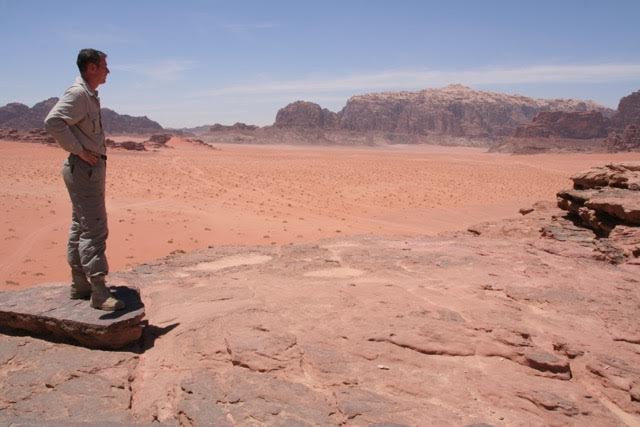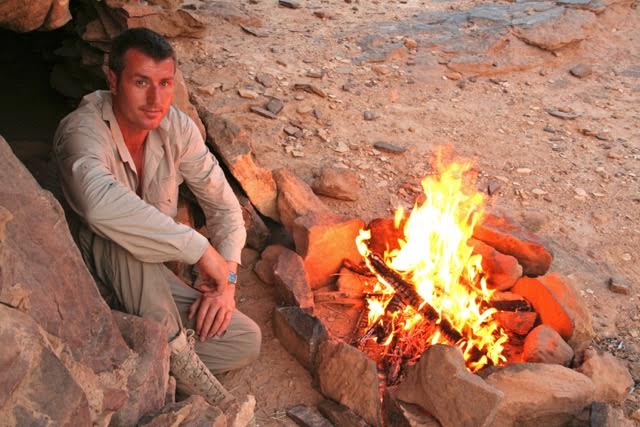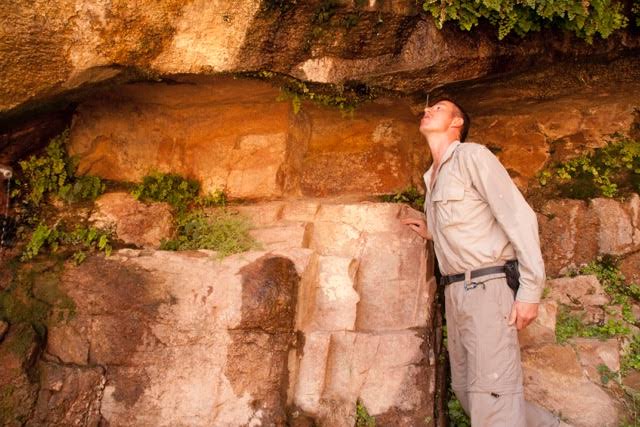

Former Royal Marine Commando, John Sullivan is a hardened survivor, operating in some of the world’s most hostile and wildest locals. Now owner of Elite Survival Training, a UK based survival training company, acting as a motivational speaker, adviser to TV acts and survival expert.
Personally, I’d need a personal locator beacon to be maximise my chances of being found by an emergency search team. They’ll need to know where I am and they’ll know my exact location. I’d also like a GPS so I can know where I am and track my own location in an otherwise featureless environment. Finally, a satellite phone to call in search teams and arrange a pick up. Failing that, I’d need a positive mindset, you can’t predict what’s going to be thrown at you when exploring so having belief in your own abilities and knowing how to react to changing circumstances is essential.

Your best bet is a watch, that’s why I’m always seen wearing mine. If it’s not noon and you want to find directions during the day, an analogue watch with minute and hour hands can be used as a makeshift compass. If possible, make sure the watch displays the correct time and point the hour hand at the sun. Whilst holding the watch still imagine an angle formed by the hour hand and a line from the 12 noon position to the centre of the watch. From there, draw a line through the middle of the angle. That line will indicate South in the Northern hemisphere. During daylight savings time, use the one o’clock position over the 12 noon position.
If you’re caught in the Southern hemisphere, point 12 noon at the sun, instead of the hour hand. Then use your imagination to create an angle between the hour hand and a line from the 12 to the centre of the watch. The line bisecting that angle is North.
At night, provided it’s clear, you can use the stars to navigate, looking for the North Star will allow you to keep your direction.
Your priority should always be to minimise sweat. Keep your skin covered, even though you probably think wearing less will keep you cooler. If you have to travel anywhere, do it early in the morning or late in the evening, once the sun has cooled. From 11am-2pm you should try to rest in the shade, to avoid the harshest of the sun’s rays.

The first thing you’ll want to do is mark in the ground where you found yourself lost and use that as your starting position. It’s far better to head back the way you came rather than pushing forward into the unknown. Believe it or not, people tend to hope they will find their way back by doing this. If possible, find some high ground so you can see as much as possible. Also try looking for signs of life, whether that be vehicle or animal tracks. Animal tracks will all inevitably lead you to water, then all you need to do is sit and wait for a search team as this will assume that’s where you’ll head and stand the greatest chance of surviving.
First, you’ll want to factor in how much water you’ll need to cook your meal. For example rice and pasta are most likely no goes, as they’ll need a lot of water to hydrate and they’ll make you more thirsty. Tinned food such as corned beef and spam, along with tuna and vegetables is always a safe bet. In an emergency, you should carry several energy bars – army ration meals that can be eaten cold and don’t need to be prepared would be the ideal – such as beef jerky and boiled sweets.
Food will be almost as limited as water. The desert is such a harsh environment so wildlife and plants will be minimal, and those you find are more than often hostile. If you are lucky you might be able to kill a snake, however for obvious reasons, you may not want to tackle one head on. Looking for footprints in the morning may lead you back to animals active at night and if you’re lucky – may have the opportunity to set a trap for the following night.
Finding water is going to be your greatest challenge in surviving. Looking for green vegetation is a sure bet that there’s water nearby, however, it may be deep underground. Dig down and collect as much as possible. To purify it you can filter out the dirt using a cloth, such as your shirt or any cloth you have available. If you can, boil it up and if the water is really bad collect the steam in a cloth and wring it out into a separate container. Another way to obtain water is by building a solar still with plastic sheeting (an opened-up carrier bag will do) and some form of container.

Naturally being in a survival situation can be incredibly stressful, which will only heighten your thirst. Rationing is crucial. However, don’t deprive yourself unless completely necessary, as becoming dehydrated may lead to you becoming delirious and reduce the positive effects on him.
Personally, I’d try to ration 1.5 litres a day, however I’d also make sure I was resting in the daytime whilst it’s too hot. Anything strenuous should be done in the cooler parts of the day to reduce sweat. Find shade and rest up.